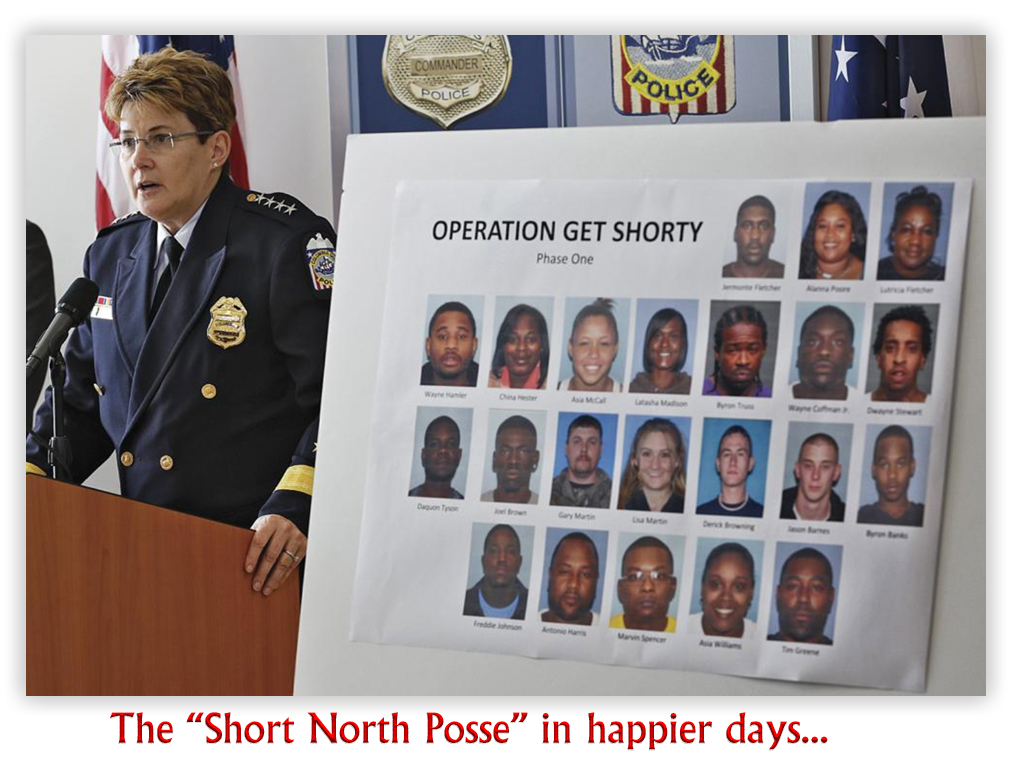We post news and comment on federal criminal justice issues, focused primarily on trial and post-conviction matters, legislative initiatives, and sentencing issues.

DAVIS IS ALREADY HELPING DEFENDANTS
The ink isn’t yet dry on the Supreme Court’s United States v. Davis decision, but it is already being applied by lower courts.
 The 6th Circuit didn’t do many favors to the Short North Posse when it upheld the convictions and sentences of five defendants who had been found guilty of all sorts of drug-related mayhem in Columbus, Ohio. Almost all of their appeal issues were shot down. Two of the five, however, won on a single issue, and it was a whopper.
The 6th Circuit didn’t do many favors to the Short North Posse when it upheld the convictions and sentences of five defendants who had been found guilty of all sorts of drug-related mayhem in Columbus, Ohio. Almost all of their appeal issues were shot down. Two of the five, however, won on a single issue, and it was a whopper.
For their participation in a home invasion and murder, Chris Harris and Cliff Robinson were convicted of murder by firearm during a crime of violence under 18 USC §§ 924(c) and (j)(1). The government, loving conspiracies as it does, based the pair’s § 924(c) convictions on conspiracy to commit a Hobbs Act robbery under 18 USC § 1951(a). After all, proving a conspiracy is much easier than proving a substantive act (like a robbery).
When the government charged Chris and Cliff and the rest of the Posse back in 2014, no one foresaw Johnson v. United States, the 2015 case in which the Supreme Court declared the residual clause of 18 USC § 924(e) unconstitutionally vagueness. In the Short North Posse appeal, the government was forced to admit that a conspiracy to commit a Hobbs Act robbery could only be a crime of violence under 18 USC § 924(c)(3)(B)’s residual clause. That clause holds that “a ‘crime of violence’ is a felony offense ‘that by its nature, involves a substantial risk that physical force against the person or property of another may be used in the course of committing the offense.”
 On appeal, Chris and Cliff argued that their 924(c) convictions had to be vacated because § 924(c)’s residual clause is unconstitutionally vague. Naturally, the government argued that Johnson had nothing to do with § 924(c)’s residual clause. However, eight days before the Short North Posse decision, the Supreme Court held in Davis that the § 924(c) residual clause suffered from the same infirmity that Johnson invalidated.
On appeal, Chris and Cliff argued that their 924(c) convictions had to be vacated because § 924(c)’s residual clause is unconstitutionally vague. Naturally, the government argued that Johnson had nothing to do with § 924(c)’s residual clause. However, eight days before the Short North Posse decision, the Supreme Court held in Davis that the § 924(c) residual clause suffered from the same infirmity that Johnson invalidated.
Davis conclusively held that a conspiracy to commit a violent act, no matter how violent the act, is not a “crime of violence” under 18 USC § 924(c). Thus, the Short North Posse decision held that “[b]ecause the Government relies only on that now-invalidated clause to support [Chris and Cliff’s] convictions under § 924(c), those convictions must be set aside.”
This is the first Davis win I have seen. There will surely be many to follow.
United States v. Ledbetter, 2019 U.S. App. LEXIS 19918 (6th Cir. July 3, 2019)
– Thomas L. Root

